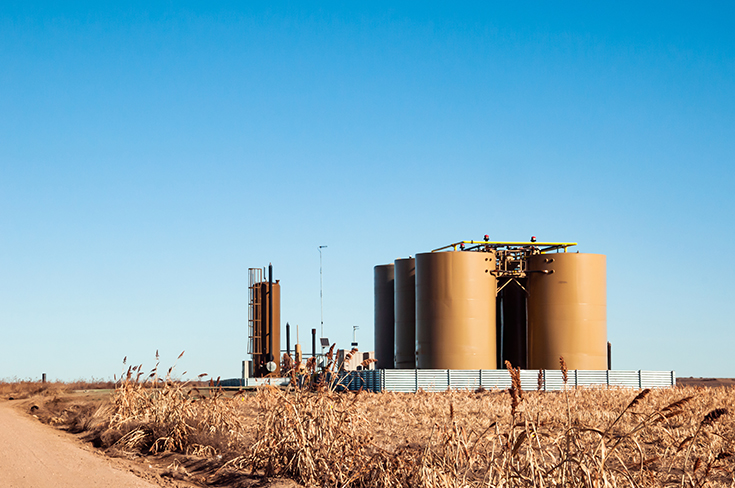Water Management Technologies (WMT)

The WMT Program focuses its research within the energy-water nexus to ensure that American water is affordable and reliable for societal use. To support this vision, the program aspires to reduce the volume of produced water disposed of during oil and natural gas production operations by developing and using technologies to economically convert the waste streams into useful products. The program’s objectives are to reduce oil and natural gas wastewater volume without reducing the volume of oil and gas production; reuse subsurface energy industry wastewater in water-scarce areas; mitigate induced seismicity; and recover critical resources.
Large volumes of freshwater are typically used during hydraulic fracturing operations to break apart the target formation and release oil and natural gas. Produced water, which includes flowback and formation water, is the water that is concurrently extracted from the subsurface after an oil or natural gas well has been stimulated and begins to produce. More than 25 billion barrels of produced water are generated annually in the production of oil and gas. Over the past decade, increased unconventional resource development in the United States has led to a dramatic increase in the volume of produced water requiring disposal, particularly the southwestern basins in New Mexico, Texas, Oklahoma, and the Appalachian Basin in the eastern U.S. In response to increasing volumes of produced water, NETL seeks to advance technologies and processes to treat produced water for use within and outside the oilfield.
In addition to supporting the beneficial use of produced water from oil and natural gas production, research also focuses on better characterization of coal combustion residuals at power plants for improved treatment and ancillary resource potential.
As with oil and natural gas production operations, significant volumes of freshwater are typically used at fossil-based thermal electric power plants for power generation. In the United States, thermoelectric power generation accounts for more than 40% of freshwater withdrawals (143 billion gallons of water per day) and more than 3% of freshwater consumption (4 billion gallons of water per day). In addition, water resources impacted by coal combustion residuals requires expansive characterization to best determine appropriate treatment processes. Coal combustion residual and produced oil and gas water effluent also represent a potential source for a variety of critical minerals, so treatment of the waste streams can also include separation elements to capture these valuable constituents.
In response to the large volume of freshwater that is affected by thermoelectric power generation, NETL supports initiatives to develop cost-effective technology solutions to better characterize and use power plant effluent water and legacy waste streams, identify and use alternative water sources, and leverage data modeling and advanced analytics to manage water availability.
Research into effective, economical and fit-for-purpose technologies that support the characterization, treatment and beneficial use of oilfield-produced water and coal combustion residual effluents are imperative to effective water management systems.
NETL's research on the energy-water nexus encompasses several key areas:
- Energy-Efficient Water Treatment: NETL supports the development of innovative water treatment technologies that require less energy than conventional methods. This includes research into advanced membrane technologies, capacitive deionization, and other energy-efficient desalination and purification processes.
- Treatment technologies that enable “beneficial use,” such as the industrial or agricultural sectors.
- Produced Water Management: NETL investigates technologies for treating and reusing produced water from oil and gas extraction. This work aims to reduce produced water disposal and create a valuable water resource. Research areas include advanced filtration, desalination, and treatment methods tailored to the specific characteristics of produced water.
- Water Use Reduction in Power Generation: NETL supports research into technologies and strategies to reduce the amount of water needed for cooling power plants. This includes exploring alternative cooling methods like air cooling or dry cooling and optimizing existing cooling systems to minimize water consumption.
- Nexus Modeling and Analysis: NETL conducts modeling and analysis to better understand the complex interactions between energy and water systems. This research includes developing tools and frameworks for assessing the water footprint of energy technologies, and the energy requirements of water treatment and distribution systems. The goal is to inform decision-making and identify opportunities for optimizing resource use.
- Advanced System Controls: NETL is developing advanced sensors and control systems to improve the monitoring and management of water resources in energy production. This work includes developing sensors for detecting water leaks, monitoring water quality, and optimizing water treatment processes.



